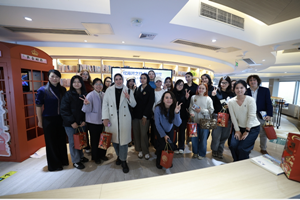Tianjin Updates
2025-12-05
Tianjin hosts Experience Tianjin international cultural exchange event
The 2025 Tianjin Impressions of Expats & 2026 Outlook Exchange was held in Tianjin on December 5.
read more- Academics address risks of AI misuse
- Henan exhibition honors Tianjin art lineage
- Tianjin supports opening of Africa's first Qihuang Institute

Copyright ©? Tianjin Municipal Government.
All rights reserved. Presented by China Daily.
京ICP備13028878號-35









 Why Tianjin
Why Tianjin Investment Guide
Investment Guide Industry
Industry Industrial Parks
Industrial Parks





 Health
Health Visas
Visas Education
Education Sports and recreation
Sports and recreation Adoption
Adoption Marriage
Marriage



